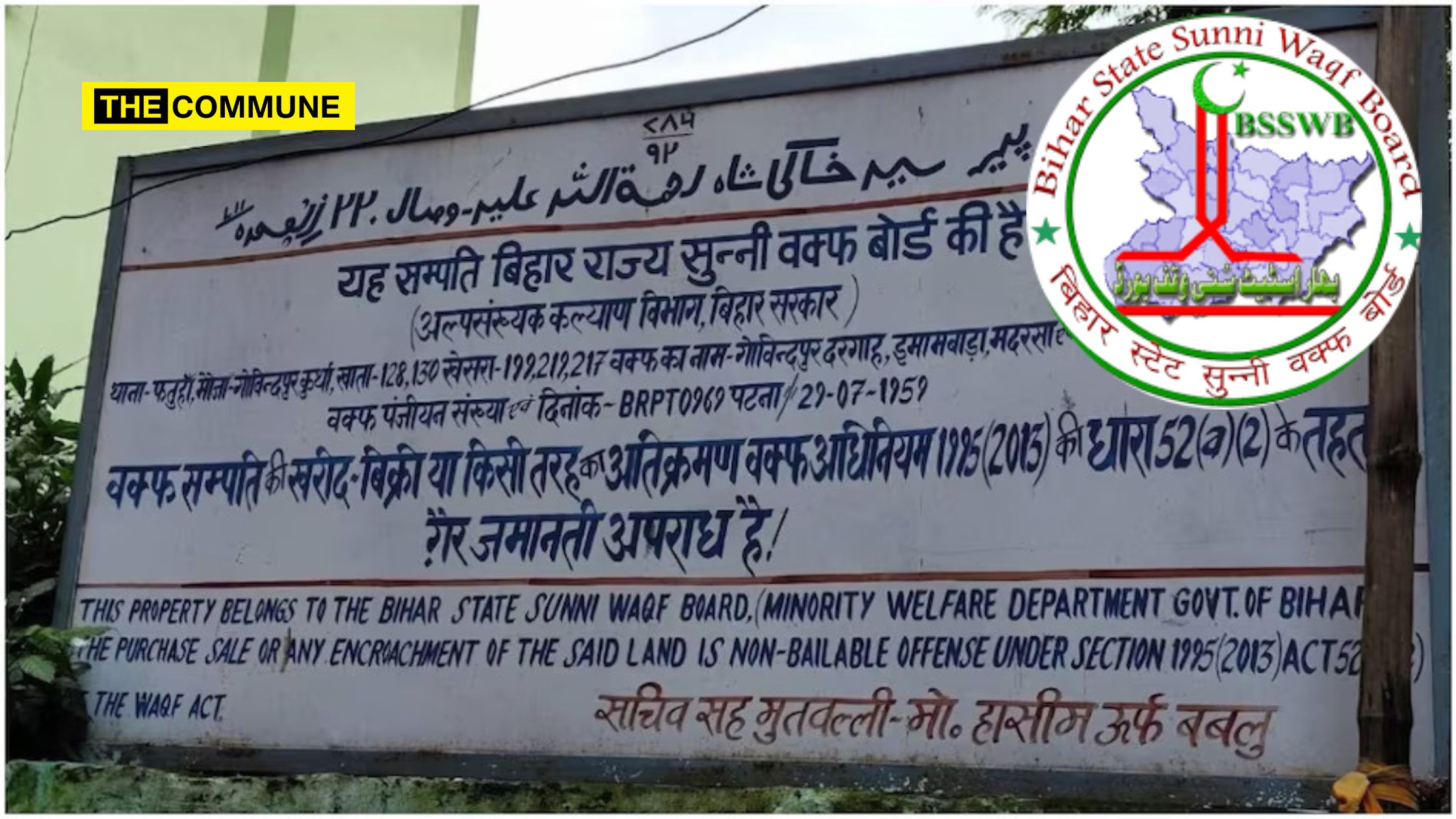
In a alarming situation reminiscent of the Tamil Nadu villages that were swallowed by the Tamil Nadu Waqf Board, the Bihar State Sunni Waqf Board is reportedly asserting ownership over an entire village and is demanding that the residents vacate within 30 days.
Bihar Waqf Claims Entire Govindpur
The Bihar State Sunni Waqf Board has reportedly claimed ownership of a village where approximately 95% of the residents are Hindu. At least seven individuals have been issued notices instructing them to leave the land within a month in Govindpur village, located 30 kilometres from Patna.
The notices inform the villagers that the Waqf Board owns the land they occupy and that they must vacate. Those who have received these notices include Brijesh Ballabh Prasad, Malti Devi, Rajkishore Mehta, Ramlal Sao, Sanjay Prasad, Sudip Kumar, and Surendra Vishwakarma.
The villagers dispute this claim, asserting their ancestors granted them the land. The seven affected villagers have petitioned the Patna High Court in response to the notices. The High Court has noted that the land has been in the name of the villagers’ descendants since 1910.
Why is the Waqf (Amendment) Act necessary?
- In 2020, the Tamil Nadu Waqf Board claimed ownership of the entire Balasamudram Municipality in Dindigul district, asserting that their records indicate the area spans 389 acres. Due to ongoing legal disputes, this claim has left approximately 10,000 residents in limbo, as they can now not sell their ancestral properties.
- In September 2022, the Tamil Nadu Waqf Board claimed ownership of the entire Thiruchendurai village in Tiruchirapalli, including temple lands, sparking significant concern among residents. This claim emerged when local farmer Rajagopal was required to obtain a No Objection Certificate from the Waqf Board to register his land sale, despite having proper revenue documents. The claim was recently debated in parliament, including over the 1,500-year-old Manendiyavalli Sametha Chandrasekhara Swamy temple. The Tamil Nadu Registration Department has acknowledged issues with encroachments and disputed properties but struggled to justify the Waqf Board’s claims over temple lands.
- In 2023, the Tamil Nadu Waqf Board asserted ownership over land allocated to 73 Scheduled Caste families in Anganakaundan Puthur, Erode District. The Tamil Nadu government provided this land in 1980 after a flood, and since then, it has been their home for 40 years. The Waqf Board’s claim has caused significant challenges, including transferring land titles, registering deeds, and obtaining loans.
- In January 2023, the DMK government wrongly reclassified 57 acres of agricultural land in Veppur village, Ranipet District, as Waqf Board property. This land, which Hindu families had farmed for decades, was abruptly claimed by the Waqf Board without proper notice or due process, causing considerable distress among the affected farmers.
Currently, the Waqf Board’s sudden claims over lands in India including ancient temple lands has sparked controversy. The Board cannot demand the Hindu residents, who have invested generations of labor into their properties, vacate their homes. This issue highlights the outdated and problematic nature of laws inherited from the British era and perpetuated by Congress. Such practices are no longer acceptable in the modern era, and there must be checks and balances on the Waqf Board’s claims.
To address these concerns, Union Minister of Minority Affairs Kiren Rijiju recently introduced the Waqf (Amendment) Bill, 2024, in the Lok Sabha. Despite opposition from various political parties, Rijiju defended the Bill, asserting that it respects the rights of all religious organizations. The proposed legislation aims to redefine the powers of State Waqf Boards, improve property registration and surveying processes, and address encroachments. Additionally, Rijiju introduced the Mussalman Wakf (Repeal) Bill, 2024, to repeal the Mussalman Wakf Act of 1923, reflecting a move towards modernizing and reforming Waqf property management.
(With Inputs From Aaj Tak)
Subscribe to our Telegram, WhatsApp, and Instagram channels and instantly get the day’s best stories.




